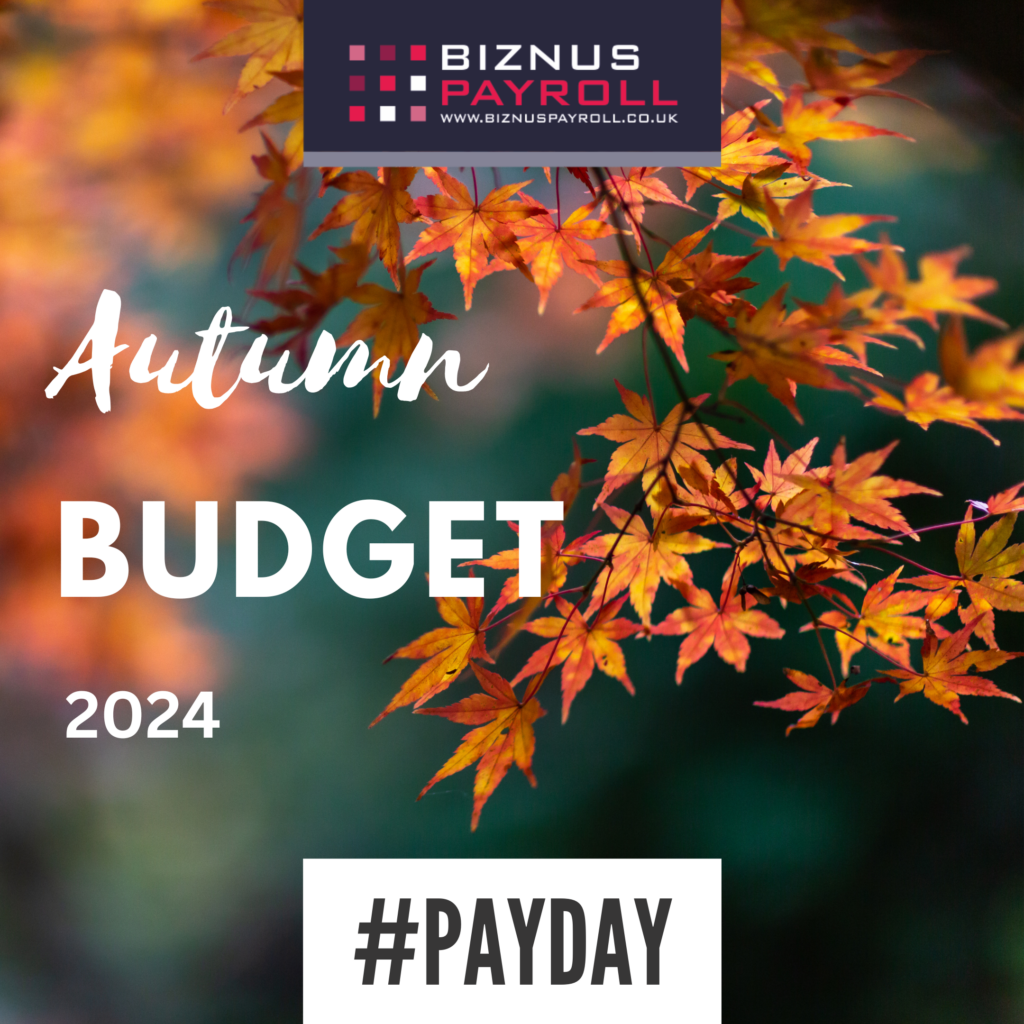 The Autumn Budget 2024 introduces several significant changes impacting employers from April 2025. It’s crucial to understand these updates to effectively plan and manage business finances.
The Autumn Budget 2024 introduces several significant changes impacting employers from April 2025. It’s crucial to understand these updates to effectively plan and manage business finances.
- Increase in Employers’ National Insurance Contributions (NICs):
- The rate of Employers’ NICs will rise by 1.2%, moving from 13.8% to 15%.
- Reduction of the Secondary Threshold for NICs:
- The threshold at which employers begin paying NICs for employees will decrease from £9,100 to £5,000 per year.
- Increase in National Minimum Wage Rates:
- For 18 to 20-year-olds, the rate will rise to £10.00 per hour, marking a 3% increase—the largest ever for this age group.
- For those aged 21 and above, the National Living Wage will increase from £11.44 to £12.21 per hour, a 7% uplift.
- Enhancement of Employment Allowance for Employers:
- To mitigate the impact of increased NICs, the Employment Allowance will increase from £5,000 to £10,500.
- The £100,000 threshold for claiming the allowance will be removed, however, all other eligibility criteria remain the same.
- Income Tax & NI Thresholds:
- The Income Tax and NI threshold freeze will not be extended beyond 2028/2029.
- The Lower Earnings Limit (LEL) and Small Profits Thresholds will increase by September’s 2024 CPI rate 1.7% from 2025/26.
- The Married Couples Allowance and Blind Person’s Allowance will be uprated by 1.7% from 6th April 2025.
- Employer NI relief for employing veterans will be extended for a further fiscal year.
Implications for Employers:
These changes will notably increase employment costs, particularly for larger businesses. Small employers may find some relief through the enhanced Employment Allowance. It’s essential to assess how these adjustments will affect your payroll expenses and overall financial planning. Proactive measures, such as reviewing budgets and seeking professional advice, can help in adapting to these changes effectively.
Certainly, the increase in employer’s NI does mean that salary sacrifice options for pension contributions for example, will become more attractive. Employers must be aware that introducing salary sacrifices must be done correctly to be effective as this is a contractual arrangement/adjustment and also to ensure that any sacrifice does not risk the employee being paid below the current National Minimum or Living Wage rates.

Sources and further reading:
https://www.gov.uk/government/speeches/autumn-budget-2024-speech
https://www.gov.uk/guidance/salary-sacrifice-and-the-effects-on-paye
https://www.gov.uk/national-minimum-wage-rates

